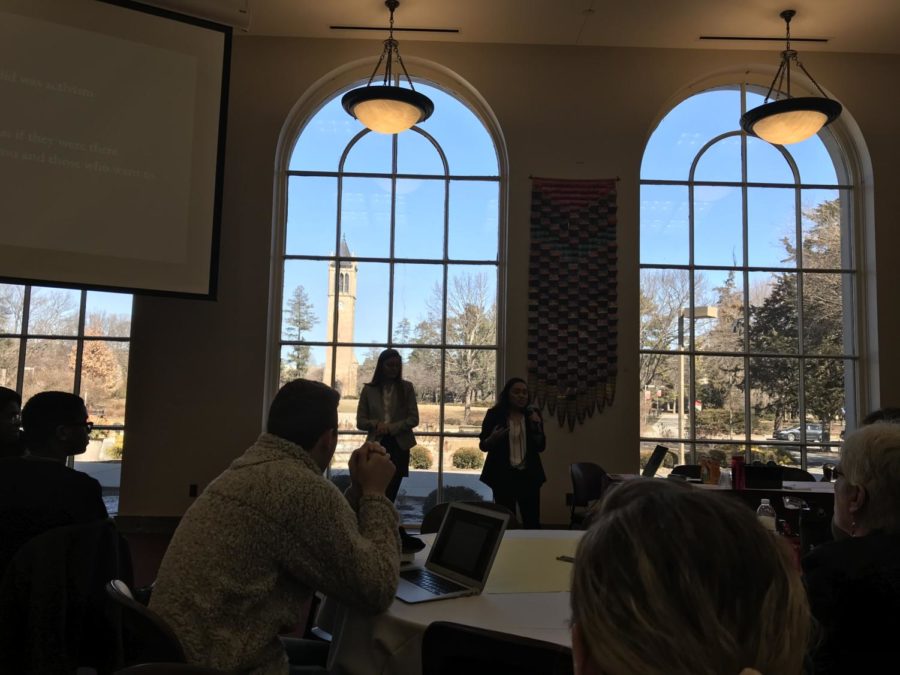Iowa State students create open discussion about activism during ISCORE session
Liliana Delgado, a junior in mathematics, and Peyton Hamel, a freshman in genetics and english and the assistant opinion editor for the Iowa State Daily, gave a presentation titled “Building an Activist Toolkit: Advice and Learning From Once Reluctant Student Activists.”
March 6, 2020
During the Iowa State Conference on Race and Ethnicity (ISCORE) that took place in the Memorial Union, two Iowa State students started an open discussion regarding what it means to be an activist, and how many others may be activists too.
Liliana Delgado, a junior in mathematics, and Peyton Hamel, a freshman in genetics and english and the assistant opinion editor for the Iowa State Daily, gave a presentation titled “Building an Activist Toolkit: Advice and Learning From Once Reluctant Student Activists.”
During this session, Delgado and Hamel initiated discussion by first explaining their own stories of being activists at Iowa State. Delgado explained how she became a student organizer in the face of hardships of being a victim of racism at Iowa State during the fall semester, and how she worked to fight for social justice, while Hamel discussed using the opinion column of the Iowa State Daily as her way to be an activist by writing about the racist events that were happening on campus and giving her opinion on them.
After they sparked conversation by giving their own stories, Delgado and Hamel asked attendees to discuss their own thoughts and feelings.
Attendees at tables of five people or more were given different questions that talked about intersectionality, privilege, rebellion, activism and advocacy. People were encouraged to speak collectively over the questions, and how they pertain to activism. Each group had to discuss their question, as well as share their own experience and work with cultural competency.
After the attendees of all varieties of students, faculty and community members, Delgado and Hamel encouraged a representative from each table to share some things of which each small group talked about. Those attending this workshop were encouraged to have a sense of openness and courage when talking to the larger group in regards to what their small group was talking about.
Many ideas about how intersectionality plays an important role in activism, how advocacy and activism are different, whether or not it is better to keep persisting on a certain movement, how the use of privilege can be a benefit and how safety place a huge role in activism movements.
Then Delgado and Hamel gave one final encouragement for people to not only keep increasing their activist toolkit, but to also keep fighting for social change.







